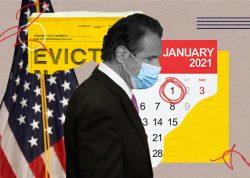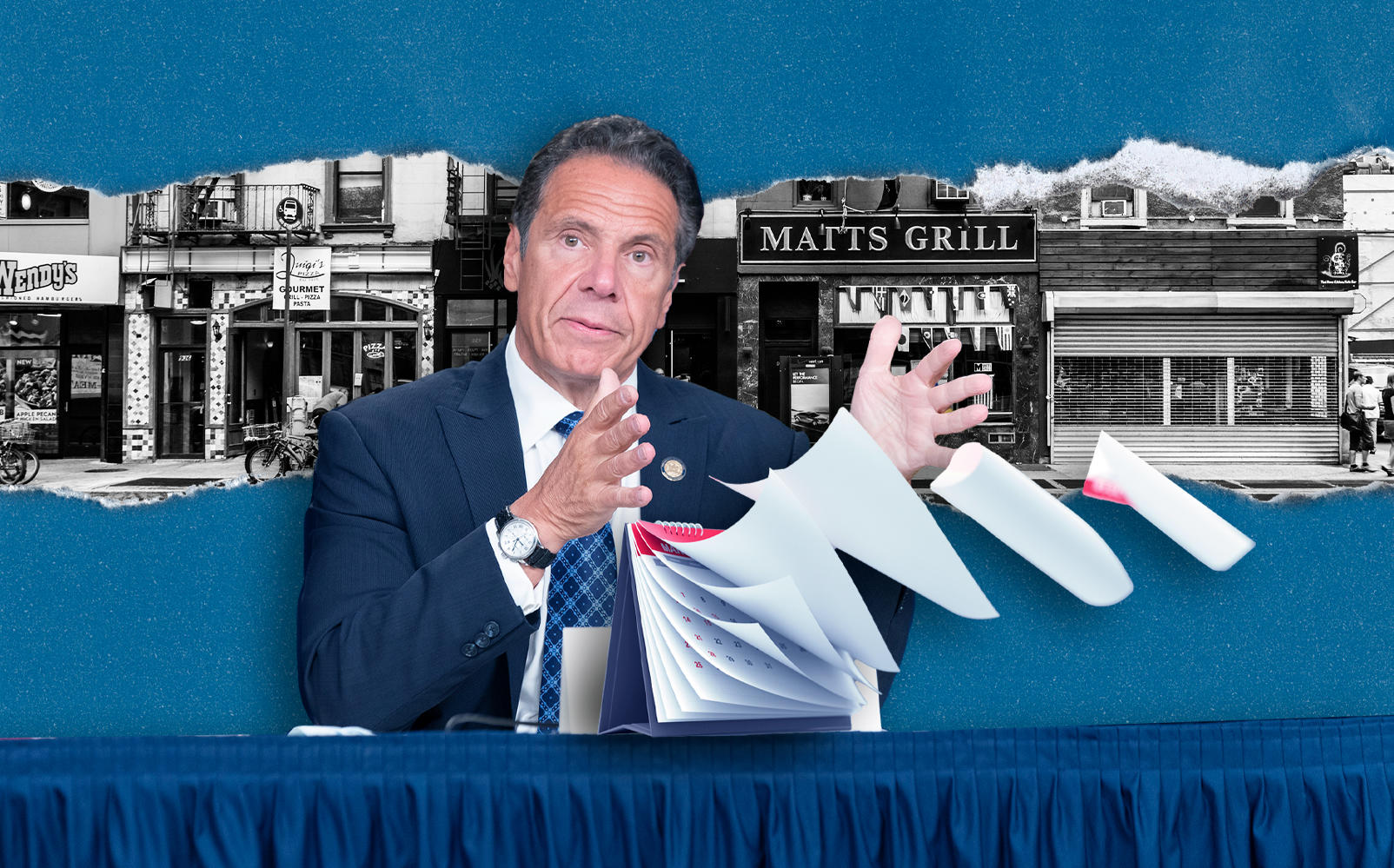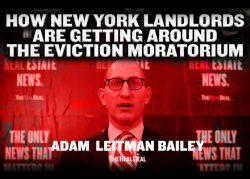 Commercial eviction and foreclosure ban extended until January
Commercial eviction and foreclosure ban extended until January
Trending
Status of NY’s commercial eviction ban is unknown
Legislation to stop evictions through May 1 has not been signed by Cuomo

After Gov. Andrew Cuomo issued another executive order, the status of the ban on commercial evictions and foreclosures is unclear.
On Monday, Cuomo issued an order that some real estate attorneys, who declined to be named because they said they did not want to publicly contradict the governor, believe extended the state’s existing ban.
A spokesperson for Cuomo said he did “not believe” the executive order extended the ban, but did not clarify whether that is the case.
If the attorneys’ interpretation is correct, the latest executive order — the governor’s 100th in response to the pandemic — would prevent those actions from taking place until March 24. The move would also represent a departure from Cuomo’s statement earlier this month to Eater, in which he said he had “no intention” of signing another executive order to prolong the ban.
According to the publication, he would instead focus on legislation to forestall those actions until May 1.
The lack of clarity comes at a time when some members of the legislature have pushed for Cuomo to be stripped of the broadened executive powers it granted him last spring in an effort to bring the pandemic under control. The state Senate proposed a bipartisan commission to review Cuomo’s orders, and Assembly Democrats have also called for the revocation of those powers.
That move follows a scandal that has erupted over top aide Melissa de Rosa’s admission that the administration withheld data on Covid-19 deaths in nursing homes.
Read more
 Commercial eviction and foreclosure ban extended until January
Commercial eviction and foreclosure ban extended until January
 How landlords get around the commercial eviction moratorium
How landlords get around the commercial eviction moratorium
 LA County sued over commercial eviction moratorium
LA County sued over commercial eviction moratorium
In late January, the state legislature passed a bill to ban commercial evictions and foreclosures until May 1. Earlier this month, a spokesperson for Cuomo said his administration was working on “slight modifications” to the bill “to ensure that the spirit” of the executive order would be carried into law.
In contrast, when the state legislature passed the residential eviction bill in late December, Cuomo signed it into law the same day.
The state legislature’s bill, sponsored by Long Island Sen. Anna Kaplan, would allow businesses with 50 or fewer employees to file a hardship declaration in order to stave off evictions until at least May 1. All pending commercial eviction cases — including those filed before the pandemic, until 30 days after the enactment of the legislation — would be stayed for at least 60 days.
Businesses with 50 or fewer employees and landlords with 10 or fewer units could also claim hardship to prevent a foreclosure until May. The legislation would prohibit lenders from using a stay of commercial foreclosure to determine whether to lend to landlords with 10 or fewer units, if the borrower files a hardship declaration. It also bans negative credit reporting for borrowers who filed those declarations.
Landlords could still evict commercial tenants if they “engage in unreasonable behavior,” but in order to do so, the landlord would have to submit documentation to prove that the behavior infringes on other tenants’ rights or is a safety hazard.




